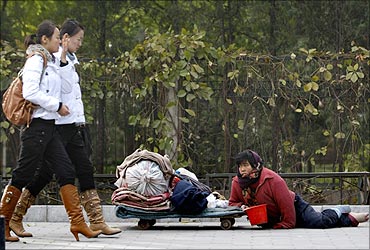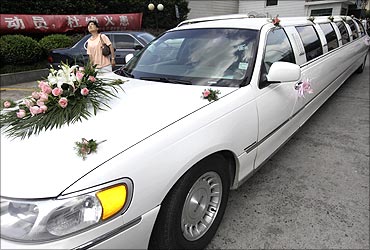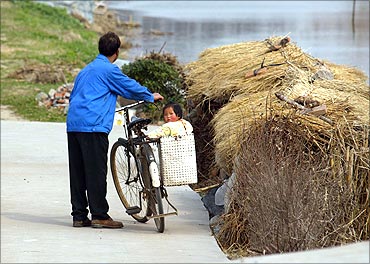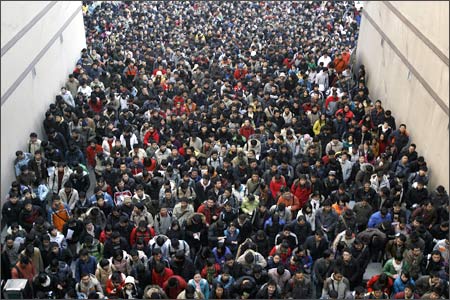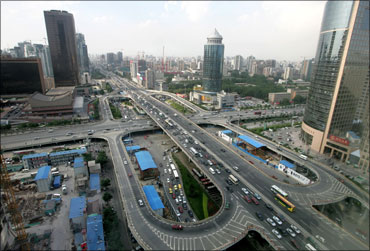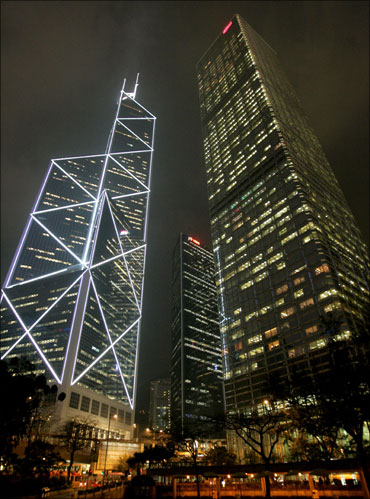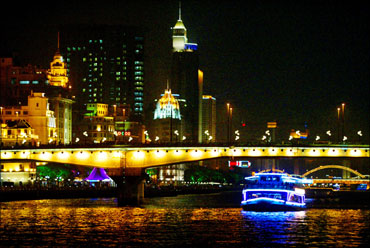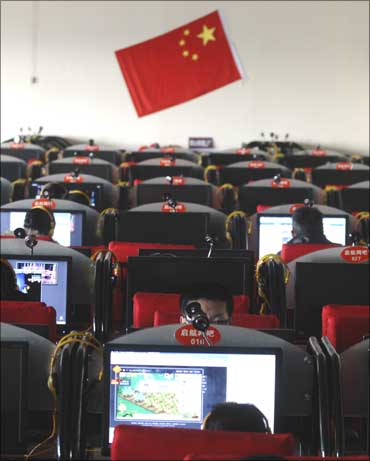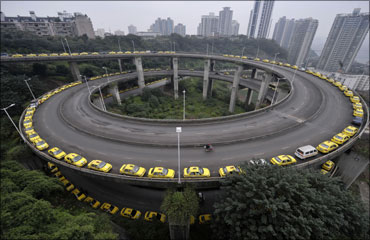 | « Back to article | Print this article |
The secret behind China's economic success
China's economic success is due less to its authoritarian system and more to Deng Xiaoping's leadership, its Far Eastern location and investments by its diaspora.
Among simplistic views on development, the latest is the 'Beijing Consensus', coined by Joshua Cooper Ramo (Foreign Policy Centre, London, 2004), whereby China is becoming the model for developing countries: an authoritarian regime, and a mixture of market economy and public interventions.It is the antithesis of the 'Washington Consensus' (1989), which advocated democracy and neo-liberalism.
Although the Chinese are very restrained about their 'model', the Beijing Consensus is gaining ground. Yet Chinese achievements have hardly anything to do with it.Click NEXT to read on
The secret behind China's economic success
China has benefitted from three major advantages after Mao Zedong's death in 1976. When Deng Xiaoping took over (1978), he became the last of the outstanding personalities who shaped the destiny of their country during the twentieth century.
Without him, there would have been changes, but not a new revolution. The Chinese people were utterly fed up with all the excesses under Mao: incredible interference in private life, the famine following the Great Leap Forward (1959-61) with 30 million dead out of a population of 700 million, and the countless sufferings during the Cultural Revolution since 1966. All these factors helped Deng. His personality and charisma and a shrewd sense of reality enabled him to win.Click NEXT to read on
The secret behind China's economic success
Although 74 years old, with very limited experience of the outside world, Deng fully understood that his people wanted a better material life and more freedom.
As for the economy, it needed thorough overhauling and modernisation, like education and health, judicial institutions and the armed forces. Many factories - the early ones built with Soviet aid in the 1950s before the break between Moscow and Peking (1960) - relied on obsolete techniques. China had been little touched by the technological progress that was widespread in the West or in Japan. The economy relied mostly on state-owned enterprises (SOEs) and collective units, especially in agriculture, leading to inefficiency and heavy procedures. That is why agriculture was de-collectivised, a number of SOEs were closed and the private sector in trade and industry was encouraged, along with foreign investment.Click NEXT to read on
The secret behind China's economic success
Between 1950 and 1960, 7,500 students went to the Soviet Union and 38,000 cadres enjoyed some training there. After 1960, very few Chinese studied abroad, while Chinese universities were badly shaken during the Great Leap Forward and the Cultural Revolution.
In spite of the achievements under Mao, China was left behind in most fields of life. After visiting the Nissan factory in Japan (1978), Deng Xiaoping exclaimed: "Now I understand what is modern industry."In 1980, senior army officers attended manoeuvres in France, with a combination of air forces, tanks and artillery. They were flabbergasted by electronic devices.
Click NEXT to read on
The secret behind China's economic success
They were taking notes (thanks to a translation) on banking, inflation, the law of supply and demand, as though they were being taught in the first year of an economic faculty.
Side by side with the opening out to the world, 1.2 million Chinese students were sent abroad, of whom 320,000 had returned by 2008.
Foreign professors are invited to China in order to strengthen existing universities and create new centres of research.
Click NEXT to read on
The secret behind China's economic success
There are, however, limits to be respected, as shown by the arrests of dissidents for promoting parliamentary democracy.
China has shifted from a totalitarian system to an authoritarian one, still relying on the Communist Party.
No less striking was the succession to Deng, which went smoothly and, later, the accession to power of the present leadership in 2002-03.
Click NEXT to read on
The secret behind China's economic success
The second factor is that overall development has been considerably helped, first by Hong Kong, and then by Taiwan and the Chinese diaspora in South East Asia.
From 1980 onwards, many factories from Hong Kong were relocated, mostly opposite it in Guangdong (or Canton, and more recently the new city of Shenzhen), which accounts for 30 per cent of exports.
From 1980 to 1996, FDI (foreign direct investment) coming from Hong Kong amounted to two-thirds of the total inflow. Until today, FDI from Hong Kong, Taiwan and Singapore accounts for more than half of the total disbursed per year. (Total cumulative FDI until 2010 was $700-800 billion.)
Click NEXT to read on
The secret behind China's economic success
In the 1980s, Indonesia, Malaysia, Thailand and Viet Nam started moving fast. Within South East Asia, the Chinese diaspora (about 30 million people) acts like a lubricant with a dense network of banks and industries.
China imports many components from South East Asia, Taiwan, South Korea and Japan, which are assembled through FDI and exported as finished goods, electronics, electrical appliances, office material and TV sets.
Click NEXT to read on
The secret behind China's economic success
None of these three factors can be found in other emerging countries. Looking at India, it lacks a Hong Kong at its door. It is not located in such a dynamic area, and its diaspora has fewer big businesses than China's.
Part of the achievements comes from Confucius emphasising the ability to learn when one is ignorant, a virtue not so common in the world! The result is the "new Chinaman" - well-trained, open-minded, asserting himself, as able as any cadre from Western countries or from India, and enjoying a better life than his parents.
Click NEXT to read on
The secret behind China's economic success
On the other hand, for several years the leadership has been very concerned with corruption, inequality, environment and social tensions. That is why its aim is to promote a "harmonious society".
The results are limited up to now, as shown by the reactions of the government to the recent demonstrations inspired by the events in the Arab world.
So far, major trouble has been avoided, but to overcome further challenges, China needs to maintain a political leadership of high calibre and rather fast economic growth.
The writer is professor emeritus, Institute of International & Development Studies, Geneva.
